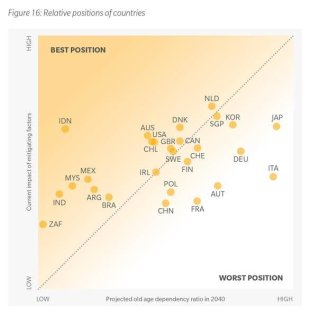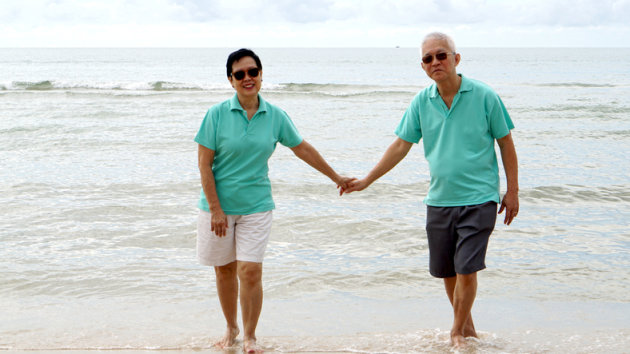Singapore ranks the highest in Asia for its pension system
 By Annette Rowena | ZUU online – Wed, Nov 9, 2016 11:59 AM SGT
By Annette Rowena | ZUU online – Wed, Nov 9, 2016 11:59 AM SGT
- ricky l 2 seconds ago
- ---
- The above statement is a positive statement. The Singapore Government did legislate that workers can work up to 65 years old and even up to 67 years old.
- But the actual facts in the ground is that many mature Singaporeans PMETs and workers are increasingly displaced, retrenched and out of jobs - and despite attempt to get back into the workforce - going for countless interviews, are unable to land a job.
- Unless, there are real momentum to see displaced mature Singaporeans PMETs and workers being identified, track, systematically and conscientiously put back into the workforce ==== "the idea is there, but the execution is weak at best and still dreaming at worst".


In its latest report for 2016, Melbourne Mercer Global Pension Index (MMGPI) reported that Singapore is now rated B Grade up from C+ the year before. Its score improved from 64.7 to 67 due to better pension adequacy.
Ranking seventh globally, Singapore retains its highest ranking in Asia for the fourth consecutive year, and sees a healthy increase in both the adequacy and sustainability scores. The increase in Singapore’s score is attributable to:
- Increased level of financial support provided by the government to the poor
- Increased level of pension assets and labour force participation at older ages

Source: MMGPI
On the right track
Singapore is on the right track towards an A Grade, one which requires a score that goes beyond 80. So far, only two countries have met this grade – the Netherlands and Denmark.
“While Singapore’s retirement income system remains amongst the best in Asia and saw a significant improvement in score from 2015, we are not yet the best globally. Creating incentives for corporate retirement plans, opening CPF to non-residents and continuing to increase the labour force participation rate as life expectancies rise, will improve Singapore’s score in the future.” says Neil Narale, Singapore Mercer Marsh Benefits Leader.
He continued by saying that the country is on the right track, with the implementation of enhanced guaranteed investment return schemes for older members of society, as well as the introduction of the Silver Support Scheme which aims to help retirees with low incomes this year.
Higher life expectancies globally

Source: Thinkstock/Getty Images
Mercer’s senior partner, David Knox reports that people are living longer. The increased life expectancy of a person over 65 in the last four decades ranged from 1.7 years in Indonesia up to 8.1 years here in Singapore.
“Without changes to retirement ages and ages for eligibility to access social security and private pensions, there will be increasing pressure on global retirement systems to the detriment of the financial security provided to older members of our society,” he adds.
Improvements to be made
It would be indeed beneficial to up the labour force participation rate for the older generation to match the increase in life expectancies, and also increase exposure on growth assets here. Neil Narale adds to this saying that the CPF Lifetime Retirement Investment Scheme is a welcome addition to CPF, as it would improve exposure to growth assets in the future.
Other possible measures that could be taken to enhance the Singapore’s retirement system include:
- Lowering the barriers to establishing tax-approved group corporate retirement plans
- Employers indicating their interest in corporate retirement plans, with policies that created incentives to promote an employer’s participation
- CPF being extended to non-residents who make up to a third of the labour force here
(By Annette Rowena)
No comments:
Post a Comment